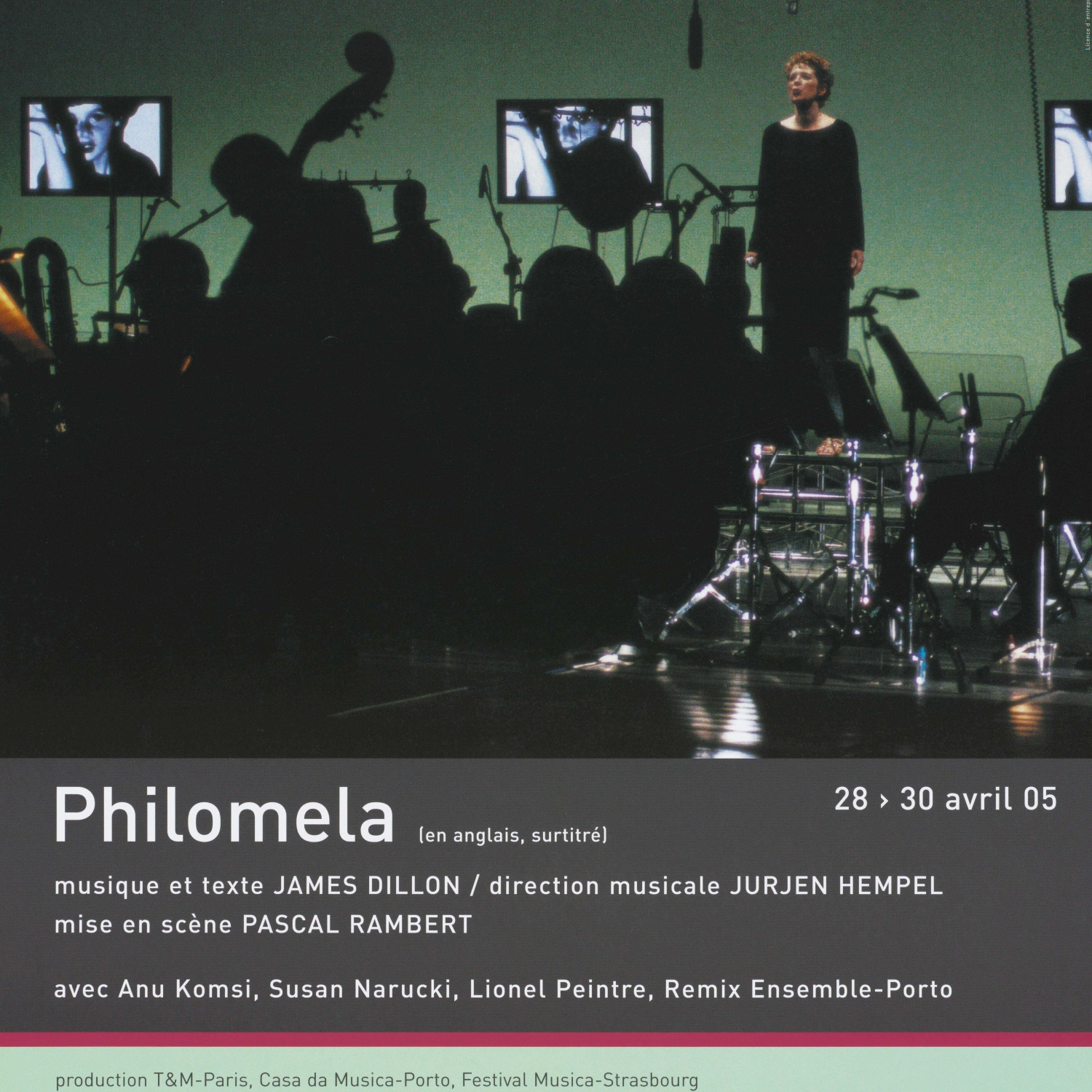Philomela
April 28 2005 to April 30 2005
Philomela, the friend of song. At the origin of this melodious name is a "strange, dark and luminous" legend, made to fascinate a musician as curious as James Dillon and a dreamer of scenes like Pascal Rambert. Among other things, this myth speaks about the way in which the visible - text, fabric or embroidery - can stand in for a language torn from its roots; how an incredible voice can rise out of dereliction and silence to proclaim the truth and justice; how "these characters we take all from," as Rambert notes, sometimes find "the strength to transform their weakness into power". Sophocles treated this fable as a tragedy, yet only fragments remain. The entire myth was passed on to us by Ovid in Book VI of his Metamorphoses. Tereus, who rules over Thrace, came to help the king of Athens, Pandion, in times of war. To thank him, the old king gives him his daughter. From this union is born a son, Itys. But after five or six summers of suffering solitude at the fringes of the Greek kingdom, Procne begs her husband to fetch her beloved sister and invite her to come to her new northern lands. Tereus agrees and returns to Attica where Pandion allows Philomela to leave with her brother-in-law. No sooner than they arrive in Thrace than Tereus locks her away, rapes her and then cuts out her tongue so she can't complain or denounce him. But Philomela finds recourse in "the voice of the nightingale," as Sophocles puts it. After weaving a magnificent dress whose designs tell her woeful tale, she manages to pass it on to Procne. This is how her sister lives and hears of the crime. To get revenge, she slits her son's throat and serves his flesh to Tereus.
Dillon, who stands alongside Ferneyhough, Finnissy and Dench as one of the main English composers of his generation, has often been inspired by literature, both philosophy and poetry. But he never before tried his hand at opera. The fable of Philomela pushed him to take this decisive step (from a commission by T&M) because it offered a captivating paradox. To cite Rambert again, "No longer able to sing, Philomela, the friend of melody, invents a new means of expression to tell her tale. This is what interested James and I, and where James had a brilliant idea: Choose as the central subject of his first opera the sudden lack of song, the absence of emitting sound. Having Philomela with her tongue cut out, the friend of melodious song now mute, it was up to James and I to invent a way for Philomela's world of sound to draw us in."



